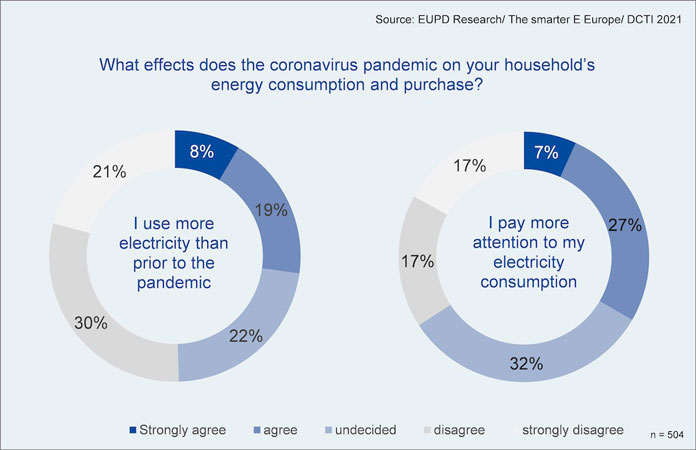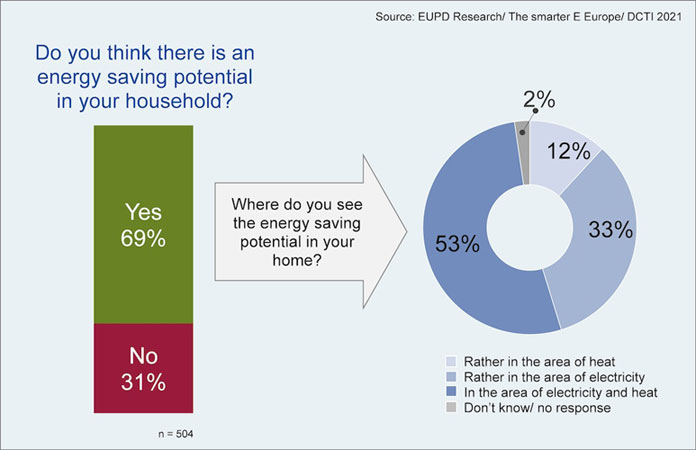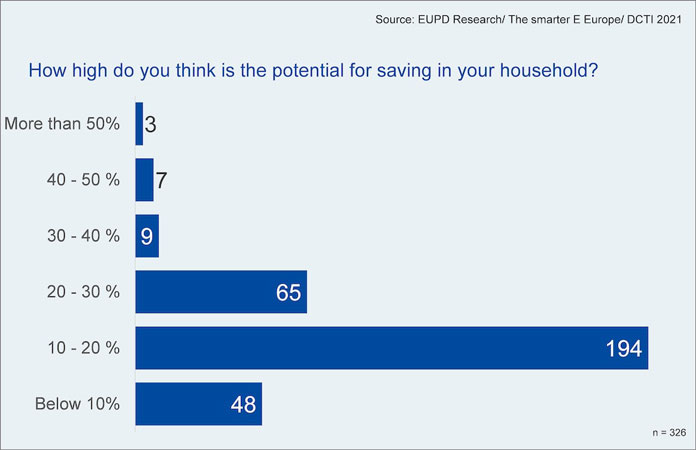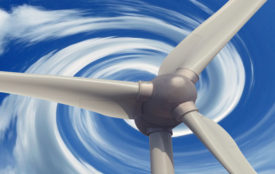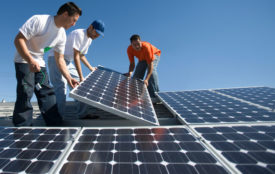Energy Saving Potential in Private Households as an Important Element for a Successful Energy Transition
Home office and reduced social contacts outside one’s home have resulted in an increase of electricity consumption for about 50% out of 500 households, surveyed by EUPD Research.
At the same time, 69% of interviewees clearly see energy saving potential in their own homes. Extrapolated to all German households, energy savings amount to 12 TWh. The survey is part of this year’s Energiewende (“Energy Transition”) Award, which will be presented to outstanding energy suppliers in the DACH region.
Bonn. The coronavirus pandemic has changed many things in life. For millions of people, for example, the daily working routines have been moved from offices to home offices. A recent EUPD Research study conducted among 500 private households shows that the additional time spent at home caused an increase of households’ energy consumption. Regarding the use of electricity and electricity consumption, about half of the survey participants state that they are currently using more electricity than prior to the pandemic. With about two-thirds the share of responding private households is even significantly higher.
Besides the switch to renewable energies, the efficient use of energy offers a large potential for the success of the energy transition. With respect to energy saving potentials in private households, the majority of survey participants – namely 69% – state to know about their potential to save energy. About 50% of interviewees name electricity and heat consumption as areas with saving potentials. One-third sees more energy saving potential regarding electricity consumption, while 12% see a stronger potential in the area of heat consumption.
Additionally, the questions arises how big the energy savings are. Survey results clearly show that the majority of private households expect energy saving potentials between 10-20%; a small share of 6% of survey participants considers energy saving potentials of 30% and more to be feasible. With the electricity consumption of private households being 127 TWh (1) in 2019, the economic energy savings potential could amount to 12 TW h in Germany.
“Although the main business of energy suppliers is energy sales, many companies have established services in the area of energy saving. Services range from simple tips on how to save energy, rentals of “energy saving suitcase” up to offering blower door tests or thermographic analyses of building shells. Our annual analysis for the ‘Energiewende Award for energy suppliers impressively shows the diversity of this rapidly growing service portfolio”, comments Dr. Martin Ammon, Managing Partner of EUPD Research.
The most innovative energy providers will be honored with the Energiewende Award at the innovation platform “The smarter E Europe“, taking place for the 5th time on October 7, 2021. The Award is addressed to highly engaged energy suppliers, who promote and accelerate the Energiewende (Energy Transition) in the DACH region. The project initiators are the DCTI Deutsches CleanTech Institute (German CleanTech Institute, The smarter E Europe and EUPD Research. For the third time, this year‘s Energiewende Award is being supported by our partner Vaillant.
- Further information about the Energiewende Award can be found at https://www.energiewende-award.de.
- 1 https://www.destatis.de/DE/Themen/Gesellschaft-Umwelt/Umwelt/UGR/private-haushalte/Tabellen/stromverbrauch-haushalte.html

